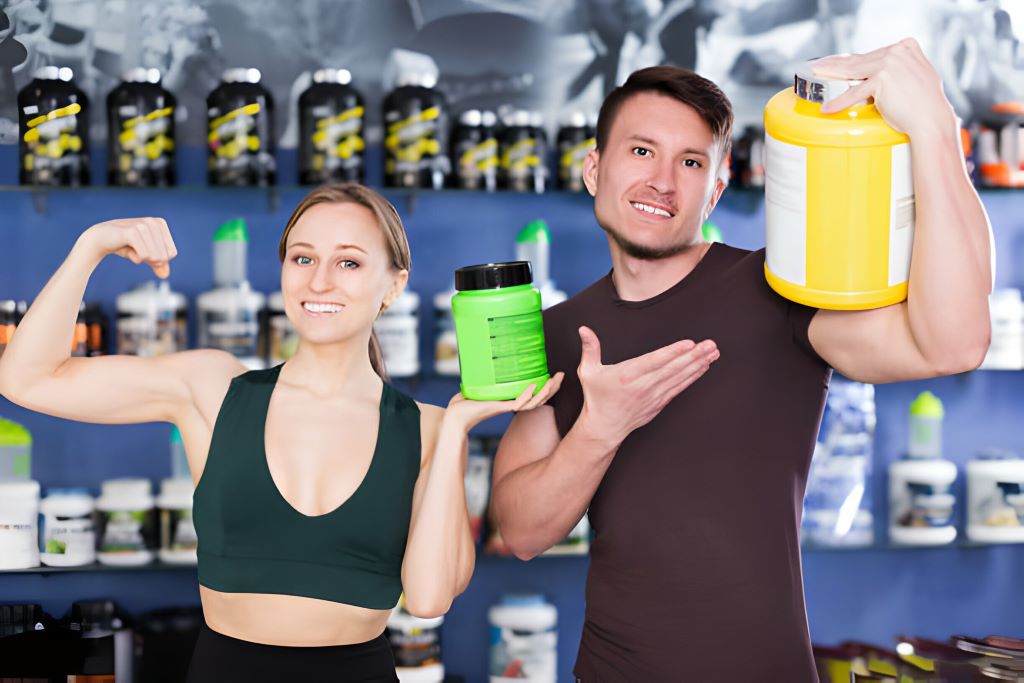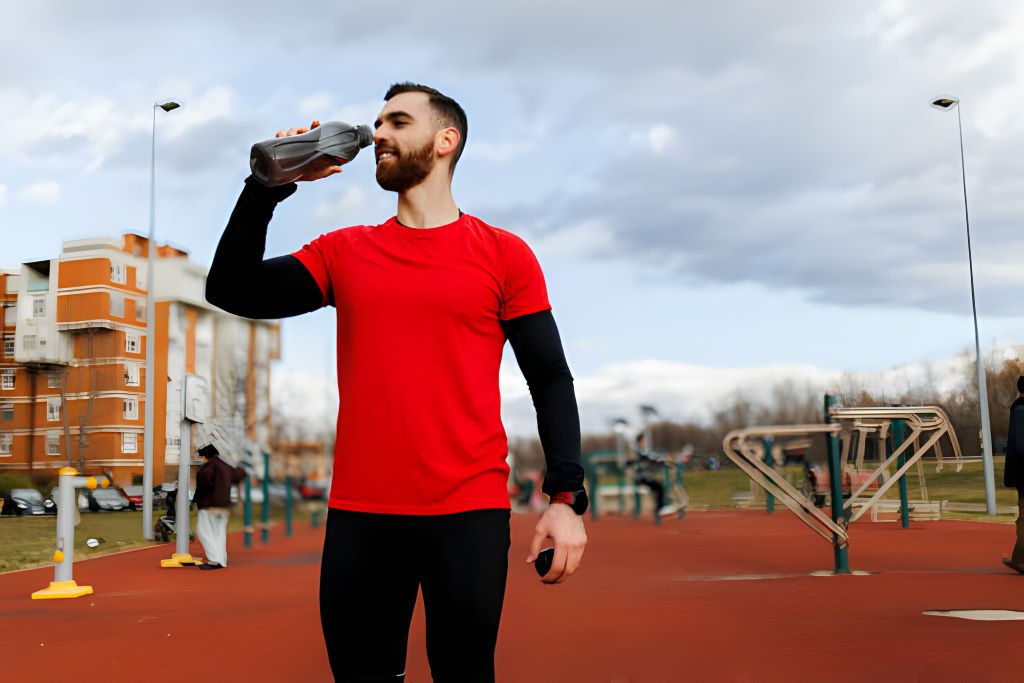In the realm of sports and athletics, achieving peak performance isn’t just about physical training; it’s also about nurturing the body from the inside out. While athletes focus on strength, endurance, and agility, they often overlook a critical aspect of their well-being: gut health.
The gut plays a pivotal role in overall health, affecting everything from digestion to immunity. In recent years, researchers have uncovered the profound impact of probiotics on gut health, leading to a growing interest in their application among sportsmen.
In this article, we delve into the importance of gut health for athletes and explore how probiotics can be a game-changer in optimizing performance.

The Gut-Performance Connection
The gut, often referred to as the “second brain,” is home to trillions of microorganisms collectively known as the gut microbiota. This complex ecosystem of bacteria, fungi, and other microbes influences various aspects of health, including digestion, metabolism and immunity.
For athletes, maintaining a healthy gut is essential for several reasons:
- Nutrient Absorption: Optimal nutrient absorption is vital for athletes to fuel their performance and support muscle recovery. A healthy gut microbiota assists in breaking down food and extracting essential nutrients, ensuring efficient nutrient absorption.
- Immune Function: Intense physical activity can temporarily suppress the immune system, making athletes more susceptible to infections. A balanced gut microbiota plays a crucial role in supporting immune function, helping athletes ward off illnesses and stay healthy throughout their training and competition seasons.
- Inflammation Regulation: Exercise-induced inflammation is a natural response to physical exertion, but chronic inflammation can hinder performance and delay recovery. Probiotics have been shown to modulate inflammation in the gut, potentially reducing the inflammatory response associated with intense training.
- Gastrointestinal Comfort: Gastrointestinal (GI) distress, such as bloating, cramping, and diarrhea, can sideline even the most dedicated athletes. An imbalanced gut microbiota is often implicated in GI issues, highlighting the importance of gut health in maintaining comfort and well-being during training and competition.
Probiotics: The Gut’s Best Friend
The best liquid probiotics for gut health are live microorganisms that, when consumed in adequate amounts, confer health benefits to the host. Found in certain foods and dietary supplements, probiotics work synergistically with the existing gut microbiota to promote balance and harmony within the digestive tract.
Here’s how probiotics can benefit athletes:
- Enhanced Digestion: Probiotics aid in the breakdown of complex carbohydrates, proteins, and fats, making nutrients more accessible for absorption. Improved digestion can translate to better energy utilization and nutrient uptake, essential for sustained performance.
- Immune Support: Certain strains of probiotics have been shown to bolster the immune system, reducing the risk of upper respiratory tract infections and other illnesses common among athletes. By fortifying the gut barrier and modulating immune responses, probiotics help athletes stay healthy and resilient.
- Reduced GI Distress: Athletes often experience GI distress during training and competition, which can hamper performance and undermine training efforts. Probiotics, particularly strains like Lactobacillus and Bifidobacterium, promote GI health by restoring microbial balance and reducing symptoms of bloating, cramping, and diarrhea.
- Faster Recovery: Intense exercise can induce muscle damage and oxidative stress, leading to delayed recovery and muscle soreness. Probiotics exhibit antioxidant properties and may mitigate exercise-induced inflammation, hastening recovery and promoting muscle repair.

Choosing the Right Probiotic
Not all probiotics are created equal, and selecting the right strain or combination of strains is essential for maximizing benefits. When choosing a probiotic supplement for sportsmen’s gut health, consider the following factors:
- Strain Specificity: Different probiotic strains exert distinct effects on gut health and overall well-being. Look for strains with documented benefits for athletes, such as Lactobacillus rhamnosus GG, Bifidobacterium lactis HN019, and Lactobacillus acidophilus.
- CFU Count: CFU (colony-forming units) indicates the number of viable probiotic microorganisms in a supplement. Higher CFU counts are generally associated with greater efficacy, especially for athletes with heightened nutrient demands and metabolic rates.
- Quality and Purity: Choose probiotic supplements from reputable brands that adhere to stringent quality control standards. Look for products that are free from additives, fillers, and allergens, ensuring purity and potency.
- Compatibility: Consider individual factors such as dietary preferences, allergies, and sensitivities when selecting a probiotic supplement. Opt for formulations that suit your specific needs and lifestyle, whether in capsule, powder, or liquid form.
Incorporating Probiotics into Athletes’ Regimen
Integrating probiotics into athletes’ daily regimen can yield significant benefits for gut health and performance. Here are some practical tips for incorporating probiotics into an athlete’s routine:
- Consistency is Key: Probiotics work best when consumed regularly, so establish a consistent supplementation routine to reap the full benefits. Incorporate probiotics into your daily regimen, preferably with meals to enhance absorption.
- Monitor Effects: Pay attention to how your body responds to probiotic supplementation, noting any changes in digestion, energy levels, or overall well-being. Adjust dosage or strains as needed based on individual responses and goals.
- Pai with Prebiotics: Prebiotics are non-digestible fibers that serve as fuel for probiotic bacteria, promoting their growth and activity in the gut. Consider incorporating prebiotic-rich foods such as onions, garlic, bananas, and whole grains into your diet to complement probiotic supplementation.
- Consult with a Professional: While probiotics are generally safe for most individuals, consulting with a healthcare professional or sports nutritionist can provide personalized recommendations based on your unique needs and goals. They can help tailor probiotic supplementation to optimize gut health and performance.

Conclusion
In the pursuit of athletic excellence, optimizing gut health is a game-changer that can elevate performance from the inside out. Probiotics offer a natural and effective means of supporting gut health, immunity, and overall well-being for athletes of all levels.
By incorporating probiotics into their daily regimen and choosing high-quality supplements tailored to their needs, sportsmen can harness the power of beneficial microbes to fuel their success on and off the field.
Remember, a healthy gut is the foundation of peak performance—so feed it well with probiotics and reap the rewards of winning inside and out.



